Unveiling the Secrets: Key Considerations for Building Your Shopify Store
In the past few years, we’ve seen unprecedented growth in the eCommerce market. Of course, the pandemic has played a role in this. But since life has gotten back to normal, the eCommerce industry hasn’t stopped thriving.
In fact, by the end of 2023, global eCommerce sales are expected to reach nearly $6.4 trillion.
This is clearly an industry with plenty of opportunities, but to take advantage of them, you need a great online store.
Shopify is an excellent place to begin. That’s why 4.15 million online stores use this platform!
Below, we’ll reveal how to start a successful Shopify store.
Shopify: A Market Leader
Shopify is an all-in-one commerce platform, which allows businesses to start, grow, and manage an online business with ease.
Since 2020, the number of stores on Shopify has grown by more than 200%! If that doesn’t tell you that it’s a good platform for your eCommerce store, what will?
The Power of Shopify
The Shopify eCommerce platform is equipped with a range of features that make it a preferred choice for businesses. From beautiful storefront designs to secure payment gateways and smart marketing tools, Shopify offers it all.
Its scalable infrastructure makes it suitable for businesses of all sizes, while its intuitive interface makes it user-friendly for both business owners and customers.
Some of Shopify's main features
- Storefront Builder - You can enjoy an easy-to-use, drag-and-drop store builder that allows you to design your online storefront without needing any coding knowledge. You’ll find a variety of customisable themes to fit the aesthetic and brand identity of your business.
- Product Management - Shopify allows businesses to add and manage an unlimited number of products and product variations, such as different sizes, colours, materials, and more. It also supports digital products and services.
- Shopping Cart - You can make the most of a secure shopping cart that can accept orders from a variety of payment gateways. It supports global currencies, automatic tax calculations, and flexible shipping options, which make the checkout process smoother for customers.
- Mobile Compatibility - Shopify themes are mobile responsive, which means they adapt to different screen sizes to provide optimal viewing experiences. There's also a Shopify app that allows store owners to manage their businesses on the go.
- SEO and Marketing Tools - You’ll also be pleased to learn that there’s a suite of SEO tools to help your store rank better in search engine results. After all, it’s critical to devise an SEO strategy for Shopify. Plus, Shopify also integrates with major social media platforms for social selling and offers built-in marketing tools like discount codes and gift cards.
- Analytics - Shopify provides detailed analytics and reporting that allow you to track sales, customer behaviour, and other important metrics. These insights can help you make data-driven decisions to grow your business.
- App Integrations - There’s also a vast app marketplace with over 8,000 apps that can extend the functionality of your store. Whether you want to add reviews, launch a rewards program, or automate marketing emails, there's likely an app for that.
- 24/7 Support - Finally, Shopify offers round-the-clock customer support through email, live chat, and phone. They also have an extensive library of resources, including tutorials, user guides, forums, and free online webinars.
Optimising Your Shopify Store For Success In 2023
With the rapidly changing eCommerce landscape, it's crucial to stay updated and optimise your Shopify store for success.
Whether it’s adopting a mobile-first approach, integrating social commerce, or leveraging AI for personalisation - staying ahead of the curve is key to success in 2023 and beyond.
So, here are some Shopify store design and development tips for success:
1. Prioritise Mobile Optimisation
As the majority of online shoppers are now using mobile devices, having a mobile-friendly store is a must. Ensure that your site design is responsive and delivers a seamless shopping experience across all devices.
2. Embrace Personalisation
Leverage Shopify's personalisation tools or third-party apps to provide personalised product recommendations, content, and offers based on customers' browsing history, past purchases, and behaviour.
3. Leverage AI and Machine Learning
AI can be a powerful tool for improving customer service (think chatbots), personalising marketing campaigns, predicting trends, and enhancing the overall customer experience.
4. Invest in High-Quality Visuals
High-quality product photos and videos can significantly improve conversion rates. Consider using 360-degree photography, augmented reality (AR) features, and interactive product visualisations to enhance your product listings.5. Enhance Your SEO
Regularly update and refine your SEO strategy to improve your store's visibility on search engines. This includes optimising product descriptions, meta tags, URLs, and incorporating a regular content strategy with blogs and articles that match your audience’s search intent.
6. Improve Site Speed
Page load time has an impact on both user experience and SEO. Optimise your site speed by compressing images, minimising HTTP requests, and using Shopify's AMP feature for mobile pages.
7. Streamline Checkout Process
This is one of the most important Shopify development tips. After all, a complex checkout process can cause cart abandonment. Simplify the process by lowering the number of steps, providing a guest checkout option, and a variety of payment methods.
8. Foster Customer Engagement
Implement a loyalty program, request product reviews, and engage with your customers on social media. Shopify has numerous apps to help with customer engagement and retention.
9. Incorporate Social Commerce
Make use of Shopify's integrations with platforms like Instagram and Facebook to sell directly through these social channels.
10. Monitor Analytics
Keep an eye on your store's analytics to understand customer behaviour, track performance, and identify areas for improvement.
The Importance of a Well-Built Shopify Store
A well-built Shopify store serves as the foundation of your eCommerce business.
It not only aids in delivering an exceptional user experience but also plays a pivotal role in driving conversions and building brand loyalty.
From site design and navigation to product descriptions and customer service, every element contributes to your store's overall performance.
Key Considerations for Building Your Shopify Store
While building your Shopify store, keep the following key considerations in mind:
- Design - Ensure that your store design aligns with your brand identity and appeals to your target audience.
- Navigation - A clear, intuitive navigation structure enhances user experience and improves SEO.
- Product Descriptions - Detailed, compelling product descriptions can boost sales and reduce return rates.
- SEO - Optimise your store for search engines to increase visibility and drive organic traffic.
- Mobile Optimisation - Ensure your store is optimised for mobile users, who now make up a majority of online shoppers.
- Checkout Process - Simplify the checkout process so you can lower cart abandonment rates.
- Customer Service - Offer multiple channels of customer service to enhance customer satisfaction.
Finding Inspiration From Successful Shopify Stores
As you plan your Shopify store, look for inspiration from successful businesses that have leveraged the benefits of a Shopify store.
Brands like Gymshark, Kylie Cosmetics, and Allbirds have set an example with their exceptional Shopify stores.
Study their designs, marketing strategies, and customer service initiatives to gather insights for your own store.
As the experts at Appnova, a leading Shopify agency in London, put it:
"A successful Shopify store is one that beautifully combines stunning design with practical functionality and a personal experience for your users. Always keep your customer at the core of your eCommerce strategy."Experience the benefits of a Shopify store
So there you have it: how to start a successful Shopify store! Building a successful Shopify store requires strategic planning, careful implementation, and continuous optimisation.
As eCommerce continues to grow, businesses that leverage platforms like Shopify effectively will be better positioned to tap into the vast opportunities this digital era offers.
Subscribe To Us








.jpg?mw=310)


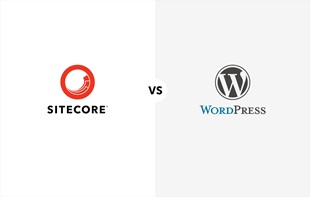


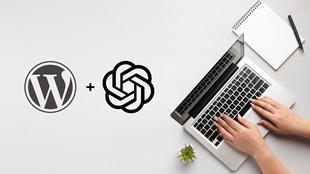

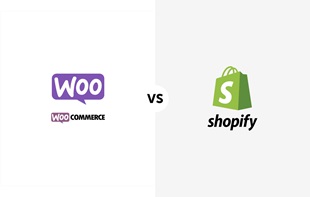





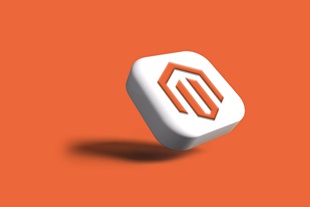




















































































.jpg?mw=310)





























![10 latest trends in digital marketing for beauty brands [Part.2]](/-/media/Appnova/Blog/ScreenShot20151026at1500471940x567/10-latest-trends-in-digital-marketing-for-beauty-brands-Part-2.jpg?mw=310)
![10 latest trends in beauty web design and digital marketing [Part.1]](/-/media/Appnova/BannerImages/18376519151_bbeaa6dafc_b-1/trends-in-beauty-web-design-and-digital-marketing/10-latest-trends-in-beauty-web-design-and-digital-marketing-Part1.jpg?mw=310)
![From story-telling to story-showing: What makes a lifestyle eCommerce? [Part.2]](/-/media/Appnova/BannerImages/ScreenShot20150929at143416/From-story-telling-to-story-showing-What-makes-a-lifestyle-eCommerce-Part-2.jpg?mw=310)























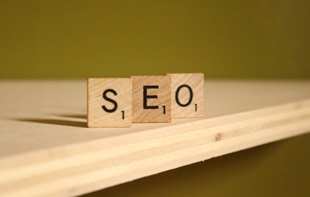


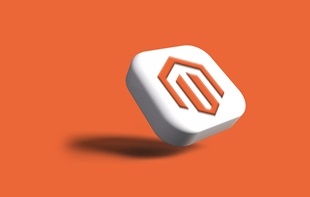


![The generation of me, myself and I – Me-commerce will remain strong. [Infographic]](/-/media/Appnova/BannerImages/mecommerce-cover/mecommerce-cover/The-generation-of-me-myself-and-I--Mecommerce-will-remain-strong.jpg?mw=310)
![A Whole New E-commerce World – Alibaba and the forty others [Infographic]](/-/media/Appnova/BannerImages/camel/camel/A-Whole-New-E-commerce-World-Alibaba-and-the-forty-others.jpg?mw=310)















0.Comments